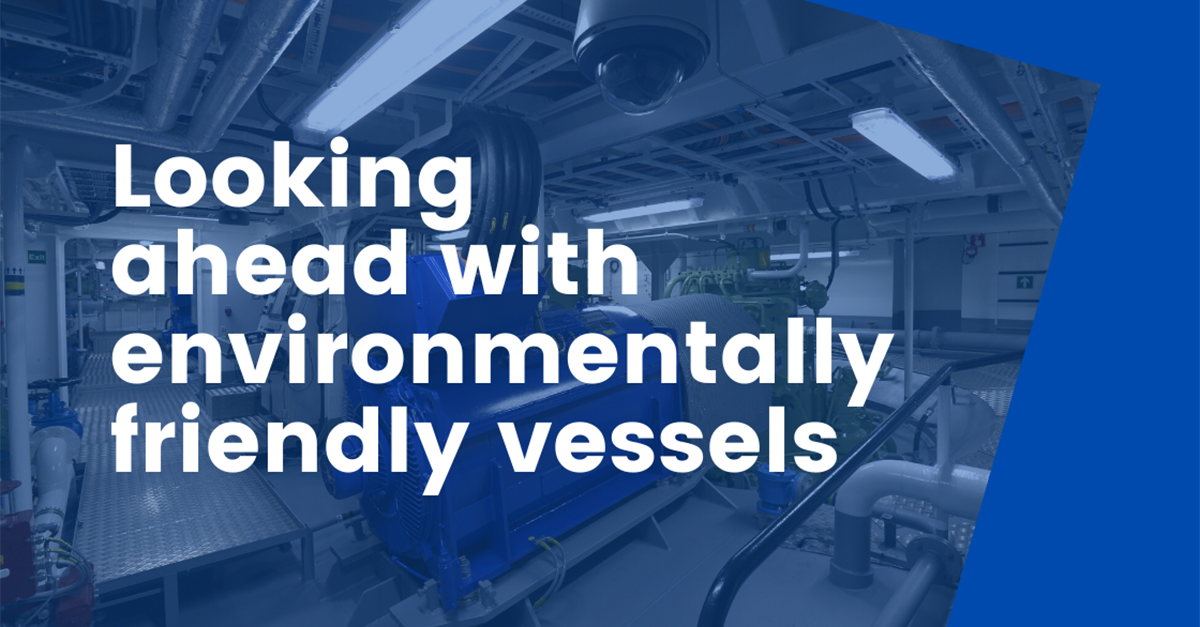Today, the number of projects involving hybrid solutions or alternate energy sources is exploding. Why? A mix of factors including environmental concerns, government regulations and long-term operational savings. Now, there are plenty of hybrid solutions with proven install bases, and the accessibility and ROI potential of hybrid solutions is starting to get within acceptable parameters. In other words, the technology has been proven and is cost effective.
But what will the future bring? Of course, there’s a lot of pressure to be environmentally friendly.
We estimate that efforts to curtail greenhouse gas emissions around ports should drive growth in the diesel-electric propulsion configurations. Today’s shipowners, who are conservative and risk averse, must accommodate changes in energy sources. If ships are built with electric drive trains, then the modifications to adding an additional power source are cheaper than if the ship had been built with a standard diesel propulsion system.
This is especially relevant in the ferry market, which is leading other sectors in the marine industry. Why? Ferries often have short operation legs coupled with regular, timed stops that allow for recharging batteries.
Due to similar operational roles, tugboats also stand to inherit the ferry’s success. Tugboats are ahead of many vessels with zero emissions and hybrid technology. Since these vessels work less than 10% of the time, they’re mostly at the dock where they can charge up with shore power. Techsol Marine has designed an environmentally friendly hybrid power management system (HPMS) for ships, using battery packs to replace generators, enabling fuel cost savings, significant greenhouse gas reductions and considerable maintenance reduction on generator engines.
And lately, these developments are also catching on for near-sea and deep-sea applications with increasing numbers of bulk carriers selecting green power to gain long-term operational profit.
In a recent case, our company was chosen to implement the propulsion system for a pioneering bulk carrier owner. We are collaborating with Berg Propulsion for propulsion design and partnering with Yaskawa Environmental Energy / The Switch for power electronics and permanent magnet (PM) machines. For our part, we deliver the “brain” that orchestrates every independent system to help ensure that the appropriate power is available by the generators through limited fuel consumption, while The Switch’s components provide the “muscle.”
Overall, it is critical for us suppliers all to collaborate in cutting pollution. Ships are becoming more integrated every year, and ship suppliers need to be able to contribute data to other ship suppliers to empower cohesive solutions.
In other words, there isn’t one group that has all the answers so it’s important to collaborate to create the best systems.
Where do we see the hybrid market going in the next few years? We need to take Norway as a good example for fostering growth. What did they do? They leveraged government involvement through regulations and grants to accelerate progress. They helped grow the industry to a critical mass where the market was able to take over.
What can be done to further improve our environmental footprint? There are two big challenges to achieving zero-emission shipping. First, there needs to be more energy-efficient solutions for the source of propulsion paths, such as PMM, DC-Hubs, as well as their appropriate management. Second, we need to advocate for the commercialization and widespread adoption and evolution of alternate energy sources, such as batteries, hydrogen fuel cells, and other technologies still in development.
What’s more, to further enhance environmental performance in the marine industry, we need to plan for the future. Ships are built to operate for a long time, and those who move forward with environmentally friendly solutions now will not have to engage in extensive retrofits should any of the actual IMO soft targets become mandatory in the future.
So, make sure that you’re ready for what’s next.
François Lessard, CEO, and Christian Nadeau, Innovation, Research and Development Manager, Techsol Marine Inc., Québec, Canada.
Techsol Marine is a leader in the marine electrotechnology that designs a range of high-tech sustainable solutions for the marine industry. In the last 20 years, Techsol Marine has equipped over 400 vessels around the world for 746 projects in 35 countries.
